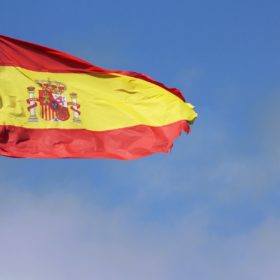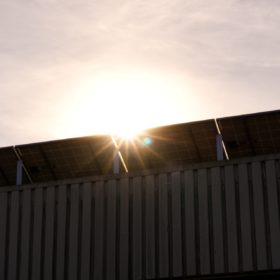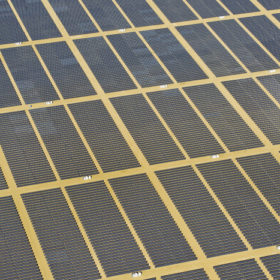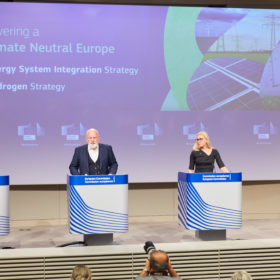Spain moves forward with new renewables auctions
The Council of Ministers has urgently approved royal decrees to regulate the clean energy procurement rounds and procedures for the grid connection of large scale projects.
From Rwanda to Riverside, California: How the US solar industry gave opportunities to an immigrant entrepreneur
When Covid-19 hit his small solar engineering business, chief executive Methode Maniraguha said: ‘No furloughs or layoffs – we’ll pivot.’
Cleantech bosses apparently unbowed by Covid-19
A clean energy and e-mobility executive recruitment firm says 67 chief executives and founders remain relentlessly positive in the face of the public health crisis and expect the global recovery from the pandemic to be led by a green revolution.
First-half solar funding fell by a quarter as Covid-19 bit
The latest PV finance report released by Mercom Capital had solar investment falling almost entirely across the board with the number of new solar funds launched in the last three months offering a rare piece of good news.
Enel joins the Indian solar gold rush
The Italian utility, fresh from securing its first 300 MW of PV generation capacity in the country in a recent, record-setting tender, has teamed up with the state-owned Norwegian Investment Fund to commit to further clean energy facilities in India.
EU hydrogen strategy could drive 120 GW of renewables capacity
The European Commission has outlined a long-anticipated plan it says could unlock up to €340 billion for new solar and wind projects over the next decade. The 30-year strategy envisages up to €470 billion being spent on electrolyzer capacity.
Covid-19 weekly round-up: Q Cells has given a timely boost to EU solar as the clamor grows for a green recovery
Plus, there was plenty of hope in predictions made by Norwegian institute DNV GL but U.S. households are facing hefty energy bills just as data from Delhi showed the link between industrial shutdowns and cleaner skies.
Q Cells commits to three-year, €125m German R&D spend
The Korean company has committed to invest in solar innovation in Germany at a time when the EU and member states are desperately trying to kick-start the Covid-19 recovery.
Lockdown and PV’s positive feedback loop
Scientists measuring air pollutants and PV performance in Delhi have found the lockdown conditions imposed in the Indian capital since late March have brought about a significant reduction in air pollution which has led to an 8% increase in solar irradiation reaching rooftop arrays.
Have global carbon emissions peaked?
Accreditation institute DNV GL has made some astonishing carbon-related predictions as it prepares the next edition of its Energy Transition Outlook report. The Norwegian body says transport-related emissions have peaked and those of the iron and steel industries may well have too.









